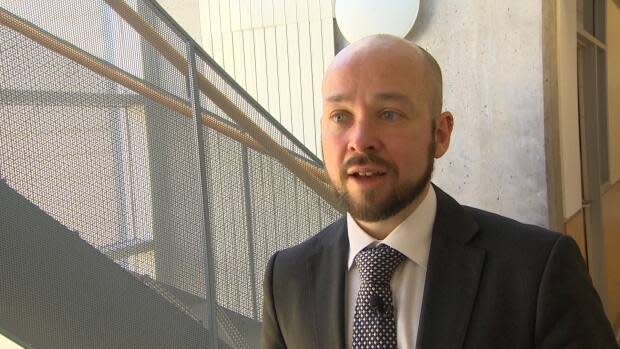Blaming COVID-19 victims could lead to less testing, researcher warns

Publicly shaming those who have COVID-19 could lead to fewer people getting tested for the virus, according to a Dalhousie University professor who has been studying the issue for three months.
In December, Robert Huish, an associate professor in Dalhousie's department of international development, started gathering the experiences of people in the Maritimes who were diagnosed with COVID-19 and experienced shaming or stigma.
"For those who have experienced it, it's pretty bad. It's enough to really impact the livelihoods of people who feel that they have been essentially excluded from communities that they had formerly been very active and a part of," Huish told Laura Chapin on CBC's Island Morning.
"We heard a lot of health workers saying that there was sort of quiet aggression even when they would take their kids to playgrounds," he said.
He said they have also heard shaming experiences from people such as truck drivers and other essential workers who have to leave the region periodically for employment reasons.
It's enough to really impact the livelihoods of people who feel that they have been essentially excluded from communities that they had formerly been very active and a part of. - Robert Huish
As well as affecting the mental health of the people being shamed, Huish said another consequence could be that people who are experiencing COVID-19 symptoms won't want to come forward and be tested for fear the same could happen to them.
That could be a factor contributing to the recent COVID-19 outbreaks in P.E.I. and Nova Scotia, he said, especially since contact tracers in P.E.I. are having difficulty finding the source for some recent cases.
"That's a big fear ... If people aren't being upfront or honest with contact tracers … that's another consequence of stigma," he said.
Because the Maritimes has had so few cases overall since the pandemic began, when cases increase, the reaction is stronger, said Huish.
"If there is an uptick, there's an immediate public reaction to say, 'Who's responsible, who did this? Now why do we have to lock down again?' And that thinking there just isn't helpful."
No positive outcome to shaming
Huish said there is no positive outcome to this type of stigma, and that despite what some believe, it won't help people follow the rules.
"If an individual has made a mistake, you know, rather than trying to … get the pitchforks and torches up and going and try to find blame, try to find answers about what could be done for the next step to make that stronger, to make these policies more adaptable, to make sure that people have the ability to overcome the next challenge," said Huish.
Huish's team is no longer doing interviews with people, but they would still like to hear stories, which you can submit at the website below.
More from CBC P.E.I.

